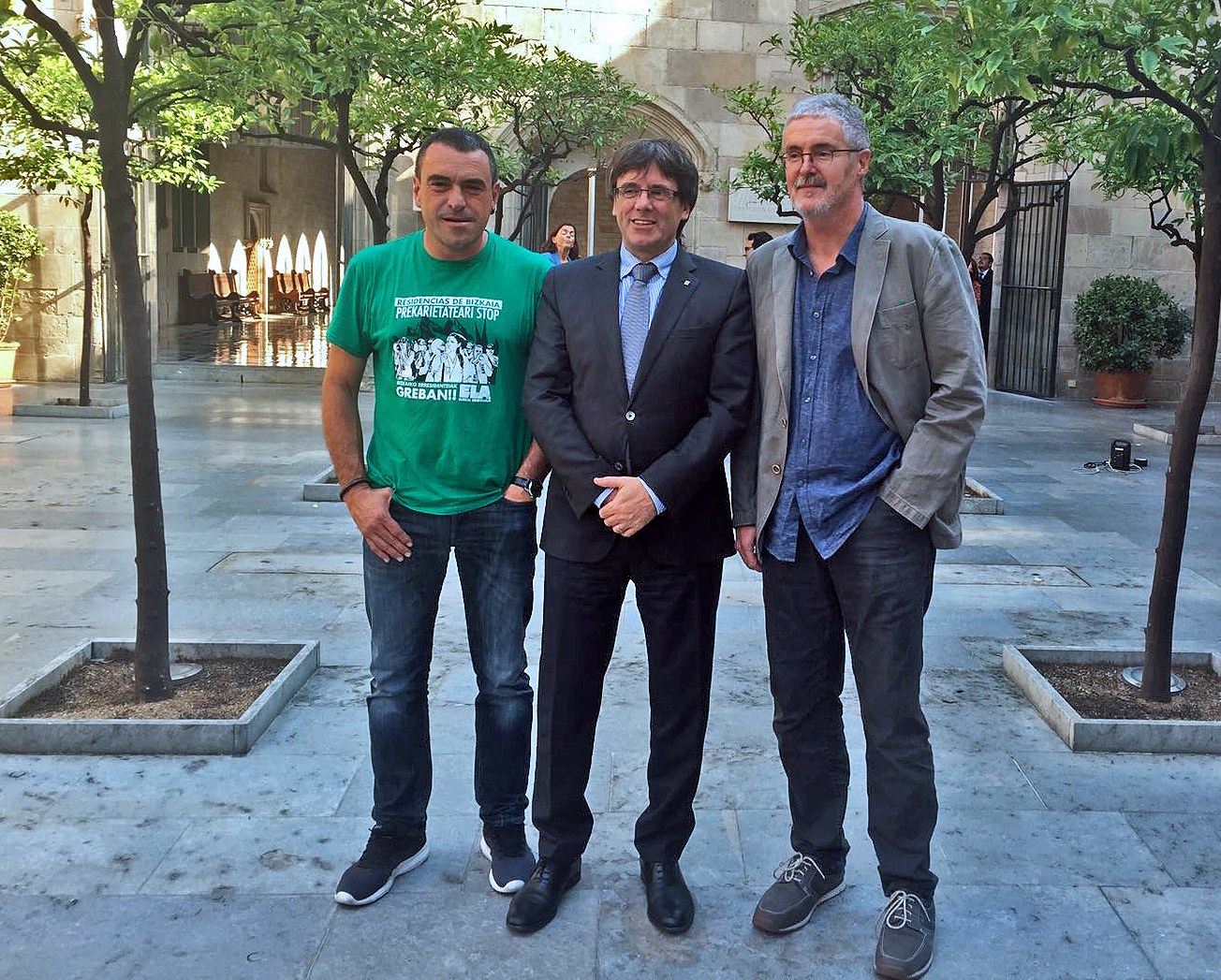ELA shows its full compliance with the Catalan process

ELA has shared the following questions about this process to which the trade union subscribes:
1. - Whereby the referendum’s promoters have concluded that Spanish law and the democratic principle that allows the Catalan people to decide on their political status are incompatible. The State has disparaged the Catalan democratic determination, just as it disparaged the Political Statute approved by the majority of the Basque Parliament. The existence of a supposed “bilateralism” with Spain is only admissible if the sovereignty renounces its political position and ends up accepting the democratic, social, political, cultural and self-governing involution that the State imposes. Spanish law vetoes the Catalan aspirations, but Catalonia, its society and its institutions have decided that they no longer want any vetoes to Catalan democracy.
2. - The commitment to exclusively democratic confrontation. By persevering along this route, the current status quo can be overcome. Without any democratic confrontation, the only thing remaining would be a resigned acceptance to the State decisions. What is being experienced in Catalonia, in ELA’s opinion, is fresh air for politics, not just for Catalan politics, but also for Euskal Herria and for the State. Those who are turning against the Catalan democratic process are either Spanish nationalistic representatives or political leaders who understand politics as an elite monopoly, who scorn social participation. ELA places value on the political courage of those, who, basing themselves on democratic principles, explain in a plain and simple way that the legitimacy of their political power lies in the Catalan people and that they will respect whatever the people decide.
3. - Essential social mobilisation. Without the social mobilisation that has arisen in recent years, Catalonia would not have reached this point. It is a political conflict because it is a social conflict and it is a social conflict because politically the Catalan democratic institutions have been able to reach the conclusion that the fallacy of “self-rule” has stopped being a valid political reference point for Catalonia. ELA also shares this conclusion regarding Euskal Herria.
Likewise, ELA has shown its most radical rejection to the repression exercised by the Spanish Government. Those who are not democrats do not accept that voting is possible because they do not want to lose: for this reason the people’s participation has usurped democracy. Having said this, and having reached this point, ELA is convinced that the criminal law of a State where the legislative, executive and judicial powers merge will not end with this process. Repression does not work when society is determined to prolong the political conflict, when the recipient of the repression is not willing to back down. On this point, ELA regrets that most of the Spanish media have disregarded any balance in the information they are reporting.
ELA understands that, in this context, the Partido Nacionalista Vasco must immediately and definitively stop upholding the majority that grants stability to the Partido Popular’s Government in the Congress.
ELA applauds the political courage of the Catalan institutions and encourages the Catalan workers to take part in the referendum and to support the sovereignty of the Catalan people.
